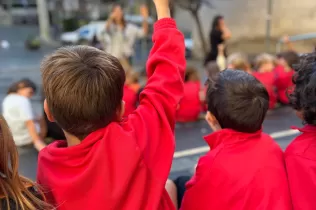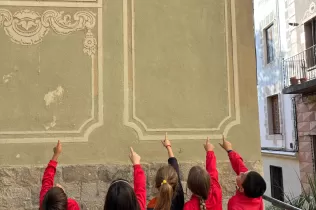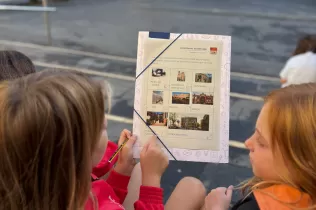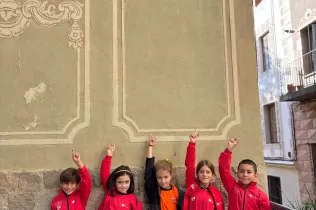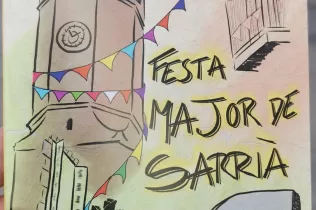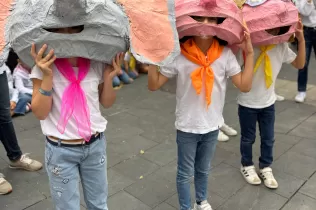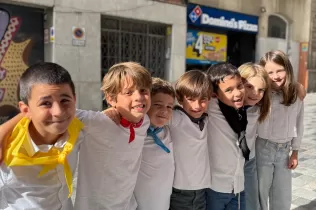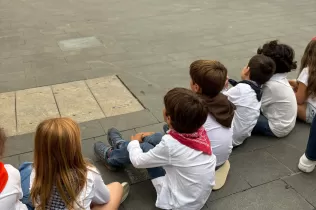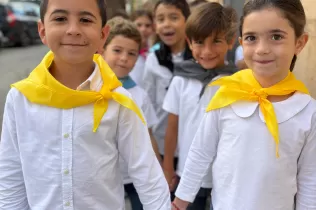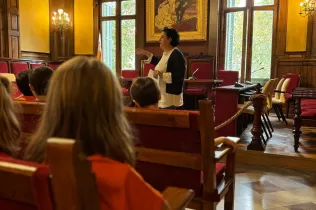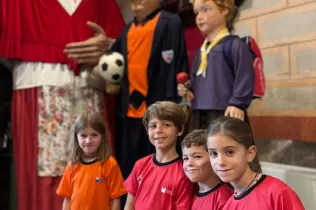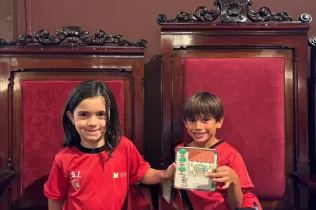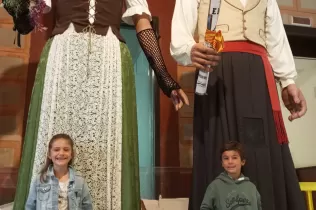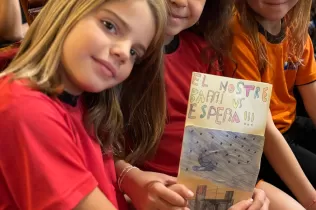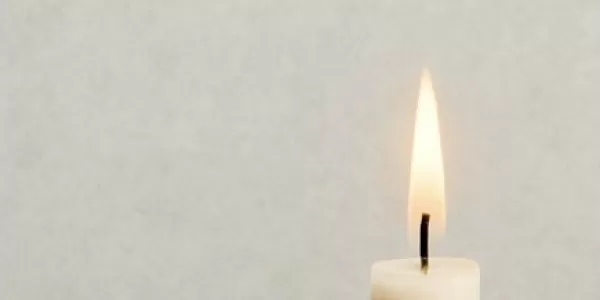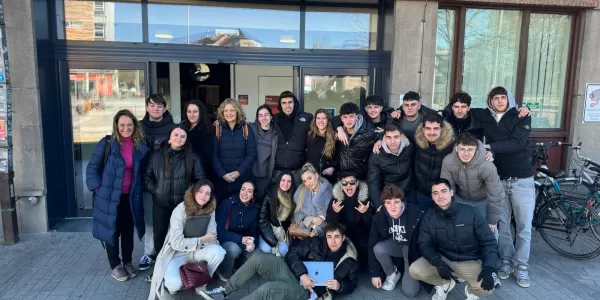October
15th,
2024
Welcome to our city
A representative of a City Council raises a problem for us: the documentation they offer to families who come to live in the neighborhood does not take children into account. They want to create material specifically aimed at newly arrived boys and girls to help them settle in the neighborhood. And he proposes a challenge: would we accept the task of making this material ourselves?
This is how we present the project Welcome to our city to the students of the 2nd year of Primary School.
In order to achieve the proposed challenge, the boys and girls of the 2nd grade of Primary reflect on how to respond, decide the best format to transmit the information and plan the tasks to produce the final product.
The project, which contains in a transversal way basic skills from different areas (Knowledge of the environment, linguistic, artistic and plastic), is developed in several phases:
• We build a neighborhood in miniature to understand what public services are, what needs they respond to and where they are located.
• We locate our city and our neighborhood on various maps, learn to interpret the graphic representations of a territory and create a literary testimony of some significant corner of the neighborhood.
• We invent heritage: we reflect on the function of museums, historic buildings and monuments, analyze the sources of information about the festivals and traditions of our neighborhood and understand the importance of the tangible and intangible heritage of a town and the need to preserve it.
• In groups, we create our welcome guide, value teamwork and become aware of the itinerary of our learning.
• We visit the district headquarters of the City Council and deliver our welcome guide so that it can be used from this moment on.
Through the varied activities proposed by each of the different phases, 2nd year students learn, in the field of Environmental Awareness, to interpret and analyze data to understand the society in which we live, to assess relevant social problems to raise proposals for the future, to participate in collective life to improve coexistence and to build a fairer and more supportive environment. In the linguistic area, fluency in reading is worked on to understand texts in different formats and supports, oral communication in different communicative situations, the production of texts of different typologies and they learn to use literary resources to express feelings, realities and fictions both in Catalan, as in Spanish and English. With the plastic activities, through drawing and color, they learn to express emotions and sensations and through the creation of models they work on the spatial dimension.
We close the project with a visit to the Sarrià Town Hall where they hand out the triptych about the neighborhood that they have prepared for newly arrived families who want to know our surroundings.
